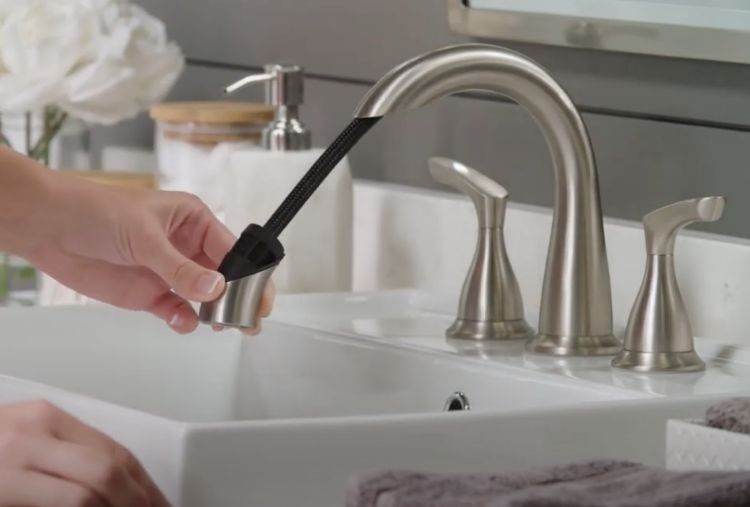Any individual will have their personal perception with regards to Leaky Faucets: Why They Happen & What to Do About Them.

Dripping faucets might look like a minor trouble, yet their impact surpasses just the inconvenience of the noise. From drainage to incurring unneeded financial expenses and health threats, disregarding a dripping tap can result in various repercussions. In this write-up, we'll delve into why it's crucial to resolve this usual house problem immediately and effectively.
Wastage of Water
Ecological Effect
Dripping faucets add significantly to water wastage. According to the Epa (EPA), a solitary faucet dripping at one drip per secondly can squander more than 3,000 gallons of water each year. This not only pressures water resources yet likewise affects ecosystems and wildlife based on them.
Step-by-Step Guide to Dealing With a Dripping Tap
Tools Required
Before attempting to repair a trickling tap, collect the necessary tools, including an adjustable wrench, screwdrivers, replacement components (such as washing machines or cartridges), and plumber's tape.
Usual Faucet Issues and Their Solutions
Identify the kind of tap and the details concern creating the drip. Common troubles consist of worn-out washing machines, corroded shutoff seats, or faulty O-rings. Refer to maker instructions or on-line tutorials for step-by-step advice on repair work.
Financial Prices
Enhanced Water Expenses
Past the ecological influence, dripping taps can inflate water bills significantly. The collected wastage in time equates right into greater utility expenditures, which can have been prevented with prompt repair work.
Potential Residential Property Damage
In addition, extended trickling can result in harm to fixtures and surfaces surrounding the tap. Water buildup can cause staining, rust, and even structural issues if left neglected, resulting in additional repair service prices.
Health Issues
Mold and Mildew Development
The consistent visibility of dampness from a trickling tap develops an ideal atmosphere for mold and mildew growth. These fungis not just endanger indoor air top quality but also pose health and wellness risks, specifically for individuals with respiratory system conditions or allergic reactions.
Waterborne Diseases
Stationary water in trickling faucets can come to be a breeding ground for germs and various other virus, enhancing the threat of waterborne illness. Impurities such as Legionella germs prosper in stagnant water, potentially leading to significant health problems when ingested or breathed in.
DIY vs. Expert Repair service
Pros and Cons of Do It Yourself Repair Service
While some might attempt to deal with a leaking tap themselves, do it yourself repair work feature their very own collection of obstacles. Without proper understanding and tools, do it yourself attempts can worsen the concern or cause incomplete repairs, lengthening the issue.
Advantages of Employing a Professional Plumber
Working with a professional plumber makes certain that the underlying reason for the trickling faucet is resolved efficiently. Plumbers have the proficiency and equipment to identify and fix tap issues effectively, conserving time and decreasing the risk of further damage.
Environmental Obligation
Specific Payment to Preservation
Taking responsibility for fixing trickling taps aligns with more comprehensive efforts toward water conservation and ecological sustainability. Every person's activities jointly make a considerable effect on protecting precious sources.
Lasting Living Practices
By focusing on timely repair work and taking on water-saving routines, individuals add to sustainable living techniques that benefit both present and future generations.
Safety nets
Regular Upkeep Tips
To prevent leaking faucets, do routine upkeep such as cleaning aerators, checking for leakages, and replacing damaged components quickly. In addition, consider setting up water-saving tools or upgrading to a lot more reliable fixtures.
Significance of Prompt Fixes
Addressing dripping faucets as soon as they're discovered avoids additional water wastefulness and possible damages, ultimately saving both water and money in the long run.
Impact on Building Worth
Assumption of Well-Maintained Property
Keeping a residential or commercial property in good condition, including addressing upkeep issues like dripping taps, boosts its perceived worth and worth among possible customers or occupants.
Influence on Resale Worth
Qualities with well-maintained plumbing components, including taps, command greater resale values in the realty market. Dealing with leaking taps can contribute to a positive impact during property evaluations and arrangements.
Verdict
Addressing a leaking faucet exceeds simple ease; it's an essential step toward conserving water, reducing financial costs, and safeguarding health and wellness and residential property. Whether with DIY repair work or professional assistance, taking action to deal with trickling faucets is a small yet impactful means to advertise accountable stewardship of resources and add to a healthier, more lasting future.
How to Fix a Dripping or Leaky Faucet
A leaking faucet is one of the most common problems that homeowners encounter, but it being commonplace doesn’t make it any less annoying. The constant drip drip drip of a leaking bathtub faucet, showerhead, or sink tap can disturb your home’s serenity. Left neglected, a dripping faucet can also result in higher water bills and discoloration or mold growth in your sink or plumbing fixtures.
Fortunately, you don’t have to be a trained plumber to know how to stop a dripping faucet. With some basic tools, replacement parts, and a little patience, leaky faucet repair is a breeze. In this article, we’ll explain what causes dripping faucets and how you can fix them.
What Causes a Leaking Faucet?
Kitchen and bathroom faucets come in all manner of designs, but most involve some combination of valves, O-rings, seals, and washers. The O-ring is usually the weakest link, but any one of these pieces can wear down over time. Heat, moisture, temperature fluctuations, minerals, mold, and movement can contribute to warping and corrosion, breaking the watertight seal. This just comes with the territory of being a homeowner. Everything is always subject to wear and tear, and some component parts of your appliances and fixtures need to be replaced on occasion. At least replacement O-rings are cheap!
More rarely, dripping faucets can be a symptom of excessively high water pressure. Were this the case in your home, you would probably notice that the leak is not isolated to one faucet. Water pressure issues are harder to resolve on your own. We recommend contacting a professional plumber if you suspect your water pressure is too high.
How to Fix a Dripping Faucet
Pipe wrench or monkey wrench Allen wrench set Screwdrivers Old towel or rag Shut off the water.
Before you do anything, you need to turn off the water to keep from drenching your kitchen or bathroom. You should find a valve under the sink and against the wall. Once you’ve turned this valve, try turning the faucet on to confirm that the water source has been cut off.
If you can’t locate your local valve for the faucet you’re working on, you can always shut off the water to the house at the main valve. Of course, this will prohibit anyone from using the sinks, showers, or toilets while you’re working on the faucet that’s giving you trouble.
Plug or block the drain.
You’ll be disassembling the faucet and removing some small bits of hardware. Plug the drain with a stopper or rag to avoid the possibility of a small screw falling into your P-trap.
Take apart the faucet assembly.
There are several varieties of kitchen and bathroom faucets, each with its own manner of assembly. For detailed instructions on how to disassemble your faucet, you can refer to the fixture’s manual or contact the manufacturer. If you know whether you have a ball, disc, cartridge, or compression faucet, you can find detailed schematics online.
In general, you need to begin by removing the faucet handles. You might notice a small screw that you’ll need to remove with a screwdriver or Allen wrench. If you don’t see any visible securing hardware, it’s likely hidden under a decorative cap that can be unscrewed or popped off with flathead screwdriver.
Remove each piece methodically, consulting a schematic when necessary. Take notes or arrange the pieces in such a way to make it easier to correctly reassemble the faucet later.
Remove the cartridge.
Once you’ve removed the handles and securing hardware, you should be able to remove the valve cartridge or stem. Some cartridges will slide right out. Other faucet models will require you to loosen a nut with a pipe wrench before you can remove the valve stem.
Examine the exposed hardware.
With the cartridge or stem removed, inspect the component parts. Check the rubber O-rings for wear and tear. Also examine the seat washer for corrosion or other damage. These pieces are usually the responsible parties for a dripping faucet, but it’s worth inspecting the other component parts while you have the faucet disassembled.
Find replacement parts.
Once you’ve identified which faucet component has failed, find an identical replacement. Your local hardware store should have O-rings, seat washers, and other standard components in stock. If you have a luxury or uncommon faucet, you may have to contact the manufacturer for a replacement part.
It’s a good idea to take your old parts with you to the hardware store so you can compare them with the store’s inventory and be sure you’re purchasing the correct replacement.
Reassemble the faucet.
With your new parts in hand, reconstruct the faucet and handles. Don’t be tempted to overtighten screws or nuts. You might think this could create a better seal, but it can instead damage or bend a delicate part of the assembly and create a new problem for you.
Turn on the water and test the faucet.
The only thing left to do is test your work. Unplug the sink, turn the water back on, and try the faucet. Congratulate yourself on a job well done!
https://www.libertyhomeguard.com/how-to-fix-a-dripping-or-leaky-faucet/

I'm certainly very focused on and I'm hoping you enjoyed reading the entire blog posting. Those who appreciated our page plz do not forget to pass it around. We cherish your readership.